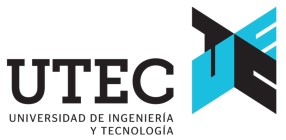
What’s different about UTEC’s approach to education and training?
We have a new pedagogical model that is completely different from other engineering programmes in Peru. At UTEC, our students learn the basics of science and technology, but they also have to come up with ideas to tackle big problems in society. That central focus on critical thinking completely changes the way we teach and also how we measure success.
How has it changed the way you do things?
For one thing, our students take courses in humanities, management and sustainable development. They also gain real-life experience by working with industry partners on semester-based challenges, developing research projects with professors or creating their own businesses. It’s a more holistic approach that ensures our students are ready to make a difference in the world.
What impact has the university had during its short time in existence?
Since launching in 2012, UTEC researchers have published more than 150 scientific papers, completed dozens of research projects and filed 11 patent applications. We have established formal strategic partnerships with several top American universities — Harvard, Massachusetts Institute of Technology, Cleveland Clinic and Purdue — and have ongoing research collaborations with other institutions in the United States, Europe, Asia and elsewhere. That’s all very important for a young university like oursto be competitive worldwide, and our students and faculty benefit from these interactions. But aside from academic excellence, to have a real impact our research needs to make a difference to society. We can see that happening in the Amazon basin.
What type of research are you doing there?
We’re conducting a comprehensive study of Amazonian rivers in Peru, from where they start in the Andes all the way to the lowlands. In just two years, we have secured around US$4 million in funding, including a large grant from the Gordon and Betty Moore Foundation, and for the first time we’re collecting data on water dynamics and sedimentation along the Amazon watershed. This study will provide policymakers with a baseline, and then we’ll use the data to develop predictions about the potential impacts of infrastructure development on the ecosystem.
Where does the social aspect come in?
What we’re producing is not only research. We’re also putting together guidelines on best management practices for government agencies planning new hydropower dams, railroads and other infrastructure projects. We are focused on Peru, but we would like to scale up to include the entire Amazon basin — from Colombia to Brazil and everywhere in between.
What is the role of UTEC’s Water Research and Technology Center?
We decided that for any strategic research area in which more than two departments at UTEC interact, it would be best to bring everybody together under the umbrella of a single centre. We established this interdisciplinary hub in 2017. If we want to, say, design sensors for water quality testing, we need to cross disciplines. And having a centre also helps UTEC attract visiting scholars, who see we have a wider vision for tackling important problems.
What other centres have followed?
Our second centre, started in October 2019, builds on our partnership with Cleveland Clinic and is dedicated to bioengineering, with a focus on low-cost devices for detecting malaria and dengue in rural areas. In November, we opened a Center for the Preservation of Cultural Heritage and Patrimony. Plus, we have a mining centre planned; one for cement and concrete engineering that is operational but not officially launched; and one slated to begin next year, focused on impact and social responsibility.
UTEC focuses on training undergraduate students. Are there any plans to move into post-graduate education?
If all goes well, in March 2020 we will be opening our first research masters of civil engineering, with a focus on water resources or heritage issues. We also hope to offer a professional masters degree in computer science. And maybe in a few years we will launch a PhD programme as well. Stay tuned!


